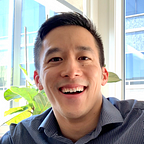I Quit TV for a Month. Here’s What Happened Next.
How a seemingly innocuous habit was holding me back in my work and life.
When coronavirus shut everything down, my partner Liz and I suddenly found ourselves with lots of extra time at home every evening. Gone were our commutes, social commitments, and dinners on the town.
All too happy to fill those new blank spaces in our calendars, Netflix, Amazon Prime Video, and Apple TV slid out of the shadows and presented their endless menus of enticing offerings to us every night.
The Marvelous Mrs. Maisel, Drive to Survive, The Morning Show. Gripping human stories brought to life with Swiss-watch production values. We quickly became hooked to an array of new shows.
This new habit of watching an hour or two of TV most nights snuck up silently and settled in with us, becoming an invisible fixture in our daily lives.
“Let’s not watch any TV for a month.”
Then, one afternoon in late April, Liz suggested that we not watch any movies or TV in the month of May. I immediately recognized that we had indeed spent a lot of time on the couch in recent weeks, and eagerly agreed to No-TV May.
The weeks that followed were an explosion of creativity from our naturally active minds, which were no longer pacified every evening into stillness by TV.
A few days into the month of May, I created a new YouTube channel focusing on personal growth for high school students (my company’s area of expertise), and started recording multiple videos per week. Liz massively accelerated progress on her own YouTube channel, and painted prolifically. I learned to cook and began writing personal development articles for a broader audience, two new activities decisively out of character for someone who gave up on cooking in college and hadn’t written anything but emails for years.
Life became more colorful as we embraced the daily opportunity to create rather than consume.
As an unexpected bonus, my work became less stressful. With the evenings no longer bound by the default habit of watching TV, I knew that I could always wrap up any lingering work after dinner if needed. That extra time each evening felt like a real-life cheat code.
With remarkable swiftness, a new norm had swept in and pushed out the old.
Overnight, nearly ten percent of my waking life had gone from consuming to creating. Suddenly aware of the sheer amount of time I had previously wasted every day, I felt a new sense of dynamism and urgency to do more with my life.
The adjustment was not flawless, however.
There was one wrinkle: Liz and I discovered that TV had previously helped us settle down, leading to an earlier bedtime. By contrast, when we worked on YouTube or painting or writing, our minds were often buzzing well into the wee hours of the morning, throwing off our sleep schedule.
We’ve since made good progress on reining in our bedtime, and I view the continued challenge of getting to bed early as a symptom of a truly wonderful shift — that we have traded away mental idleness each evening for activities that make us feel too alive to want to stop.
Two months after No-TV May, we’re different people.
We still hardly ever watch TV, and in our free time, we continue to create far more than we consume.
No-TV May taught me that that is how I want to approach my life as a whole: I learned that I want to feel active, creative, alive.
May was so illuminating that we followed it up with an equally successful No-Shopping June, which helped us practice minimalism and intentionality in spending. For Minimal July, we tried living on a small, selected fraction of our belongings, further proving to ourselves how much more minimal we could be.
Whenever we propose a new experiment for an upcoming month, it has to be something that scares both of us, just a little. It should be realistic, but not so easy that we know we will succeed.
In addition, our experiments generally involve taking away something, rather than adding new behaviors. One of our favorite guiding principles is a quote from Airman’s Odyssey, by Antoine de Saint-Exupéry:
“Perfection is achieved, not when there is nothing more to add, but when there is nothing left to take away.”
These one-month experiments have been, and still are, crucial to shedding light on the contours of habits we barely knew we had. Liz and I are now more capable of asking ourselves whether we have allowed ourselves to fall into any patterns of behavior that need scrutiny.
I, for one, can’t go back to how we used to be just a few months ago.
I suppose that’s a sign of progress.
